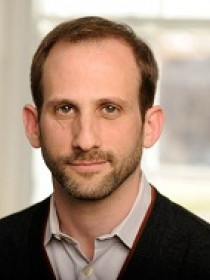
Adam Sheingate
Professor of Political Science, Johns Hopkins University
Chapter Member: Maryland-Washington, D.C. SSN
Areas of Expertise:
Connect with Adam
About Adam
Sheingate’s work examines the politics of policy, or how government institutions, organized interests, and widely held ideas together shape what government does. He also has particular expertise in issues of food and agriculture policy, as well as health policy.
Contributions
Why America's Food is Still Not Safe
Key Findings Brief,
No Jargon Podcast
In the News
Quoted by Brooke Staggs in "Politicians are Using Cameo to Pay Celebrities to Make Video Endorsements, and it’s all Legal," The Mercury News, February 6, 2020.
Research discussed by "House Narrowly Passes Farm Bill That Includes Stricter Work Requirements for Food Stamps, a Month After Failing on First Try," The Washington Post, June 21, 2018.
Research discussed by , in "Maryland Gov. Hogan, Possible Democratic Rivals Expand Voter Outreach with Technology," The Baltimore Sun, June 21, 2018.
Quoted by Jill Rosen in "Johns Hopkins Initiative Looks at How Diverse Groups, Ideologies Coexist in Communities," Johns Hopkins University Hub, March 30, 2017.
Opinion: "In the Era of Trump, Be Careful What You Eat," Adam Sheingate, Democracy Journal, February 7, 2017.
Interviewed in "How Donald Trump Won the Election, and What the 'Experts' Missed," Johns Hopkins University Hub, November 9, 2016.
Quoted by Ned Resnikoff in "Money in Politics: Bernie Sanders’ $200 Million Campaign Boosted Left-Wing Consultants Who Helped Barack Obama, Howard Dean," International Business Times, June 14, 2016.
Publications
"Still a Jungle" Democracy: A Journal of Ideas, no. 25 (Summer 2012): 48-59.
Finds that food industry practices and regulatory shortcomings leave Americans exposed to greater risks from unsafe food. Policy reform requires both a reorganization of government responsibilities and a revitalized consumer movement.
"Building a Business of Politics: The Rise of Political Consulting and the Transformation of American Democracy" (Oxford University Press, 2016).
Traces the history of political consultants from its origins in the publicity experts and pollsters of the 1920s and 1930s to the strategists and media specialists of the 1970s who transformed political campaigns into a highly profitable business. Shows how political consultants have reshaped politics. Covers recent developments like the commercialization of digital campaign tools and the consolidation of the political consulting industry into global media conglomerates.
"Agriculture" in Guide to Interest Groups and Lobbying in the United States, edited by Burdett Loomis, Peter Francia, and Dara Strolovitch (CQ Press, 2011), 163-172.
Shows why agricultural interests continue to benefit from government largesse despite their dwindling numbers. The geographic concentration of production combined with the committee system in Congress allows those interests that directly benefit to exercise the most influence over policy.
"Why Can’t Americans See the State?" The Forum 7, no. 4 (2009).
Shows why government is invisible to most Americans despite its pervasive role in their lives. Finds that most government employment in the United States is at the state and local level and is concentrated in public safety and education.
"The Rise of the Agricultural Welfare State: Institutions and Interest Group Power in the United States, France, and Japan" (Princeton University Press, 2001).
Finds that political institutions shape agricultural policy and interest group power in profound ways. Although farmers in the United States remain a powerful group, agricultural politics admits a wider range of concerned interests when compared to other countries.